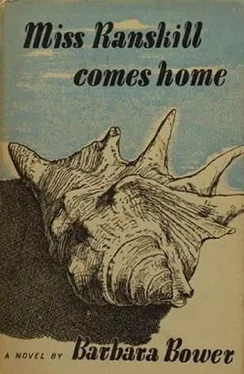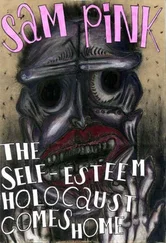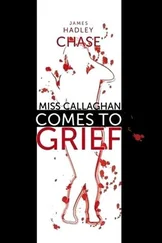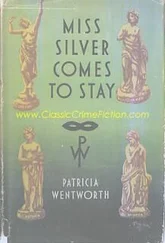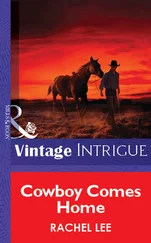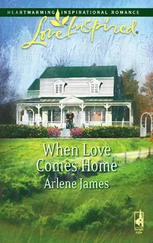had remained the same all through the years on the island. She had always been proud of her integrity and of the Carpenter’s too. They had made between them a greater story than the ones usually begotten on desert islands in books.
The New York Times reviewer, for one, did not however find this aspect of the novel unbelievable. Anne Richards’ verdict was that:
The relationship that develops between prim, virtuous, old-maidish Miss Ranskill and the gentle Reid, who is still intensely devoted to his home and family back in England, becomes with the author’s fastidious and imaginative touch, a fragile, guileless experience, touchingly persuasive and real.
There is, however, a degree of wistfulness manifest in Miss Ranskill’s recollections of the preservation of her honour, and also the recognition that her feelings about class differences have undergone a change which would be incomprehensible to her previous friends and family in England. Had they been rescued together, they had planned to visit each other’s homes, and she imagined the perplexity of Edith, her elder sister, as to how he should be received:
‘The man is neither fish, fowl nor good red herring now that you have made a friend of him, as it were. Yes, I know the circumstances are peculiar, but that makes it all the more difficult : people won’t understand . We can’t let him eat in the kitchen with Emma if he’s a visitor – so unsettling for her , and he can’t possibly feed with us .’
Nona Ranskill returns home to a world radically changed by the outbreak, unknown to her, of the Second World War, and not to the nostalgic image of England that she and the Carpenter used to summon up in mental pictures to entertain each other most evenings. Nevertheless she finds many class barriers still intact. The Commander of the convoy who has rescued her prophetically warns Miss Ranskill that nostalgia, translated literally from the Greek, means ‘return pain’, and she has much reason to remember his remark.
The contemporary reader would have understood about the innovations presenting seemingly insuperable obstacles in Miss Ranskill’s path; having lost her naval escort, she encounters suspicion and hostility as she attempts to buy food without a ration-book, clothes without ‘coupons’. The younger reader of today, while appreciating the humour often inherent in the situations, might also share Miss Ranskill’s Kafkaesque bewilderment as to the meaning of overheard conversations:
Miss Ranskill put a hand to her aching head. Had the language changed or had she forgotten words? Was she, perhaps, a trifle mad? Rip van Winkle could scarcely have felt more puzzled than she did. What had happened in her absence that fantastic horrors could be described so casually? Even the language was secret from her, full of strange words and alphabetical sequences.
In her brief memoir, Ursula Betts recalled her stepmother’s fund of stories of the excesses of wartime committees in her village, and in this novel some of the characterisations, bordering on caricature, provide a useful corrective to the then prevalent image of nobility and self-sacrifice of the women manning the Home Front.
Throughout the novel, Barbara Euphan Todd interweaves the humour of Miss Ranskill’s with serious concerns. And the reader is made conscious of the fact that the war is approaching its end, and that post-war readjustment may not be easy. Miss Ranskill recalls the difficulties suffered by ex-servicemen after the First World War:
So many of them had journeyed through the valley of humiliation, worn smooth by the steps of commercial travellers; and had waited diffidently on doorsteps to sell vacuum cleaners and gimcrack gadgets.
The present war’s experiences meant that their sons were ‘evolving slowly into a race apart’. Looking at an airman on the train, Nona wonders:
How would they, who had seen the ten-acre meadows as inch-wide patches for a country’s quilt with the warp and waft of streams and hedges no thicker than rows of stitching, keep the bounds of a counter in the years to come and employ their fingers to cut patterns of crêpe-de-Chine for customers?
Terence Rattigan was to provide a sensitive and sympathetic portrayal of this problem in the character of Freddie Page in The Deep Blue Sea (1952).
In Miss Ranskill Comes Home , there is recognition that the following generation was also at risk. Towards the end of the book, a magistrate in a Juvenile Court warns that the ‘legalised crime’ of reported Commando raids had lent a false glamour to such exploits to boys too young to remember peace conditions, and in a particularly prophetic passage, continues:
All their examples are gone and their fathers are away. Old fogies like myself can’t do a great deal of good, though we try our best. Yet these children must be saved or the war will be a mockery and we shall only have bred a race of hooligans who will menace peace as the Germans have menaced it.
Rosamond Lehmann had ended her review by saying that Miss Bower had ‘great gifts’ and that she looked forward to her next book. It remains, however, a mystery as to why Barbara Euphan Todd did not write a further book for adults. She did continue to write books for children after the war, as well as two children’s plays based on fairy stories, in collaboration with Mabel Constanduros. She died in 1976.
As an example of her step-mother’s sense of humour and tenacious spirit, Ursula Betts told the following tale:
When she was no longer young, a dog of hers died and the gardener dug a grave. Out in the garden at night, she slipped and fell into it. The grave – for a dachshund – being narrow and small, she was wedged into it and could by no means raise herself. So there she spent the night (fortunately a warm May one), consoling herself, she said, by reciting the hymn – ‘Teach me to live that I may dread/The grave as little as my bed.’ Luckily the morning brought some workmen to a nearby plot and they heard her shouts and rescued her.
Her fictional creation, Miss Ranskill, would have given her few marks for resourcefulness with regard to her failure to escape from her predicament, but no doubt top marks for her sangfroid.
Wendy Pollard Cambridge, 2003
Order a free copy of the Persephone Catalogue
If you have enjoyed this Persephone book why not telephone or write to us for a free copy of the Persephone Catalogue and the current Persephone Biannually? All Persephone books ordered from us cost £12 per book or three for £30 plus postage. All ebooks ordered from us cost £8 or £20 for three.
PERSEPHONE BOOKS LTD
59 Lamb’s Conduit Street
London WC1N 3NB
Telephone: 020 7242 9292
Fax: 020 7242 9272
sales@persephonebooks.co.uk
www.persephonebooks.co.uk


PERSEPHONE BOOKS
LONDON

Persephone Book No 46
Published by Persephone Books Ltd 2003
First published 1946 by Chapman & Hall
© The Estate of Barbara Euphan Todd
Afterword © Wendy Pollard 2003
Endpapers taken from ‘Sutherland Rose’, a 1946 screen-printed cotton textured fabric designed by Graham Sutherland for Helios
© Whitworth Art Gallery, the University of Manchester
eBook-Production: GGP Media GmbH, Pößneck
Читать дальше
